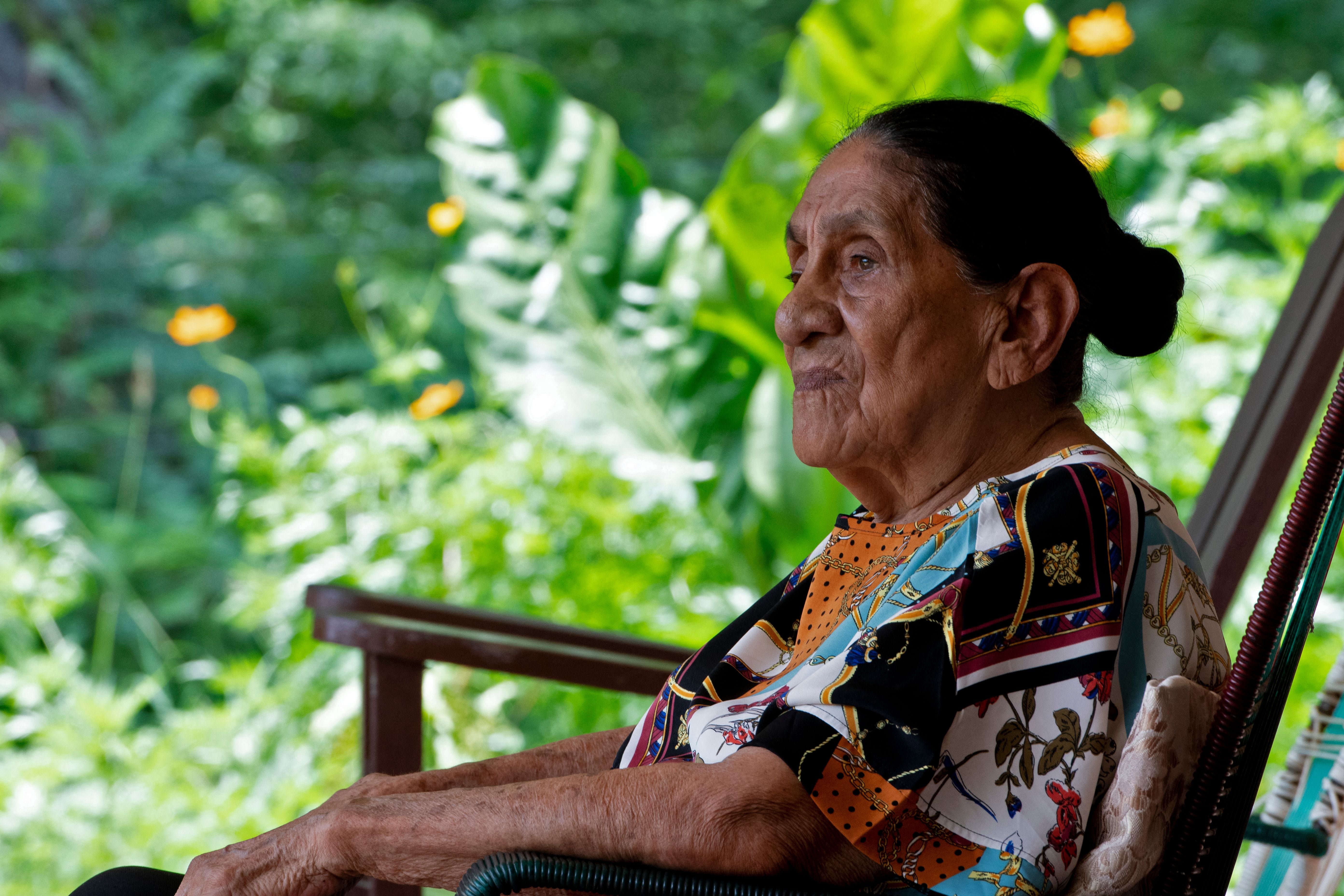Blue Zones offered hope as real-life fountains of youth – new research says they can be explained by comically flawed data
Five regions of the planet were claimed to hold the key to living past 100. Research by Dr Saul Newman of the Oxford Institute of Population Ageing shows the truth isn’t that simple, writes Kevin E G Perry
Your support helps us to tell the story
From reproductive rights to climate change to Big Tech, The Independent is on the ground when the story is developing. Whether it's investigating the financials of Elon Musk's pro-Trump PAC or producing our latest documentary, 'The A Word', which shines a light on the American women fighting for reproductive rights, we know how important it is to parse out the facts from the messaging.
At such a critical moment in US history, we need reporters on the ground. Your donation allows us to keep sending journalists to speak to both sides of the story.
The Independent is trusted by Americans across the entire political spectrum. And unlike many other quality news outlets, we choose not to lock Americans out of our reporting and analysis with paywalls. We believe quality journalism should be available to everyone, paid for by those who can afford it.
Your support makes all the difference.They were supposed to be real-life fountains of youth. In March 2000 the term “Blue Zone” was first used to describe Sardinia, an Italian island that appeared to be home to a statistically improbable number of people living past the age of 100. In the decades since, four more areas have been identified around the globe where locals apparently have an increased chance of becoming a centenarian: Okinawa in Japan; Nicoya in Costa Rica; Ikaria in Greece and Loma Linda in California. These so-called Blue Zones have inspired countless studies, cookbooks, travel stories and even their own Netflix documentary series (2023’s Live to 100: Secrets of the Blue Zones). The trouble is, the outlandish claims about the life-giving properties of these regions just don’t stand up to close scrutiny.
Last month, Dr Saul Newman of the Oxford Institute of Population Ageing was awarded the Ig Nobel Prize for his work debunking Blue Zones. Newman’s investigation into serious flaws in the data about the world’s oldest people saw him take home an award that has been handed out since 1991 for scientific research that “makes people laugh, and then think.” Newman says that when he looked into the claims about Blue Zones he found a pattern of significant data being routinely ignored if it didn’t fit the desired narrative, and statistical anomalies that could be better explained by administrative errors or cases of pension fraud. “It’s as if you gave the captain of the Titanic nine goes at it and he’s smacked into the iceberg every time,” Newman tells The Independent of the research. “What’s most astounding is that nobody in the academic community seems to have thought it’s ridiculous before this. It’s absurd.”
Take Sardinia, the original Blue Zone. While it was purported to be home to crowds of centenarians, European Union figures show that the island only ranks around 36-44th for longevity in the continent. Many of those who were supposed to have reached very old age in their Italian idyll turned out to in fact be dead, they just hadn’t been reported as such to the authorities. “Sometimes the mafia is involved, sometimes it’s carers,” says Newman. “There’s a lot of cases in Italy where younger relatives have just kept claiming the pension even though granddad’s out the back in the olive garden.”

Something similar seems to have been happening in Nicoya in Costa Rica, where around 40-50% of centenarians were found to have misreported their ages, and on the Greek island of Ikaria. In 2015, Germany requested that Greece audit their spending as a condition of their bailout during the financial crisis. Until then, Greece had been paying pensions to around 9,000 centenarians. After the audit, that figure dropped by 72%. “That number comes from the Greek minister who was handing out the pensions,” says Newman. “He’s the guy with the most incentive to minimize the problem of anybody in the world, and he’s saying that 72% are rubbish.”
When they’ve measured Okinawa it doesn’t do any of the things they claim Blue Zones do. Not even close. It’s comedically wrong
Claims about the Blue Zones have gone far beyond simply saying that people in the regions live longer than average. Author Dan Buettner, who founded the Blue Zones LLC marketing company in 2008, has outlined what he calls the “Power 9” factors prevalent in these areas that contribute to long, healthy lives. These are: exercising by moving naturally, having a purpose, “downshifting” routines to reduce stress, stopping eating when 80% full, eating largely plant-based diets, drinking 1-2 glasses of wine per day, a sense of religious faith or belonging, putting their families first and living in positive social networks.
However, when Newman looked into whether these characteristics are true in Okinawa, he found a wide gap between the claims and reality. “There’s some extraordinary cognitive dissonance going on,” he says. “The Japanese run one of the largest and longest-running nutritional surveys in the world. It covers 96% of their citizens, and when they’ve measured Okinawa it doesn’t do any of the things they claim Blue Zones do. Not even close. It’s comedically wrong.”
Take for example the claim made on BlueZones.com that Okinawans are disproportionately filled with “Ikigai”, a sense of purpose in their life. That’s just not true: in fact, Okinawa has the 4th highest suicide rate in Japan. Similarly, claims that the area is particularly religious don’t hold water. “They’re the least religious place in Japan,” says Newman. “93% atheist.”
How did the idea that Okinawa is a great place to grow old take root in the first place? Newman attributes it in part to the fire-bombing of the area by the US during World War II, which caused the destruction of countless birth certificates and other records. “Within Okinawa, the distribution of centenarians is predicted by who had their Hall of Records blown up,” he says. “You have an occupying army of GIs who don’t really speak Japanese replacing birth certificates because they’ve just blown them sky high. In a town where this has happened, you have more centenarians.”

This wouldn’t be the first time that dubious record-keeping has led to false claims of extreme longevity. For decades, the Guinness Book of Records stated that the world’s oldest man was Pierre Joubert, who had lived to the grand old age of 113 years, 124 days. It later turned out that record keepers had conflated a father’s birth date with the death date of his son, who was also named Pierre Joubert. In fact, the elder Joubert had died at the more reasonable age of 65 – a fact that had been written on his death certificate the whole time, if anybody had bothered to check.
For Newman, claims about the health benefits of the supposed Blue Zone lifestyle lose all credibility when you understand how unsupported the premise is by empirical data. “Firstly, does lying to the public matter?” he asks. “Secondly, the astounding thing is that one of the guidelines is that you should drink every day at twice the NHS heavy drinking guidelines. That is a recipe for alcoholism. It’s mad that it’s being propelled as health advice. If you were a doctor telling your patient to drink every day, you’d get disbarred.”
The suggestion that daily boozing is a cornerstone of a healthy lifestyle is particularly strange when you consider the fifth Blue Zone, Loma Linda. This small city in Southern California is home to a large community of tee-total Seventh Day Adventists. The area was added to the list in 2008, and then in 2020 Buettner sold Blue Zones LLC to Adventist Health, the health care system of the Seventh Day Adventist Church. “Why are Seventh Day Adventists, who claim this as their core belief, pushing people to drink?” asks Newman. “They’re supposed to be sober. It’s just baffling to me.”
In a statement to The Independent, Blue Zones LLC vehemently disputed Newman’s research, calling it “ethically and academically irresponsible”. Their full response to his findings can be read here.
In the end, it might be time to retire the concept of Blue Zones and write the whole thing off as a collective case of wishful thinking. “People do not want to go jogging,” says Newman. “They don’t want to give up drinking. They don’t want to give up smoking. They want there to be some far flung, exotic island where everything’s okay and if you eat the goji berries you’re gold. It’s a nice dream, and it has always, throughout the entirety of history, sold well. But is it true? I would suggest jogging.”
This article was amended on October 18, 2024, to include a statement from Blue Zones LLC.

Join our commenting forum
Join thought-provoking conversations, follow other Independent readers and see their replies
Comments